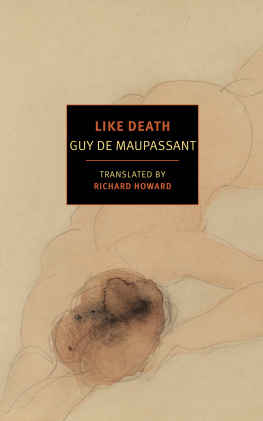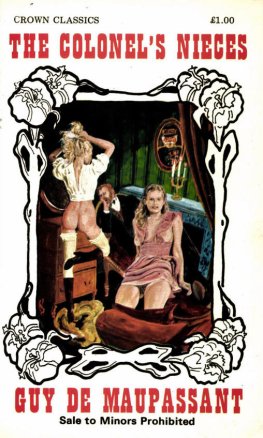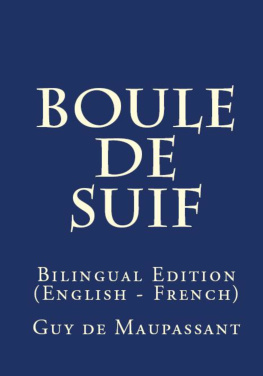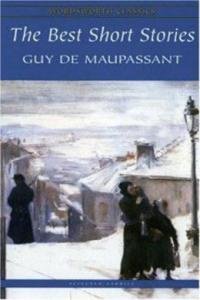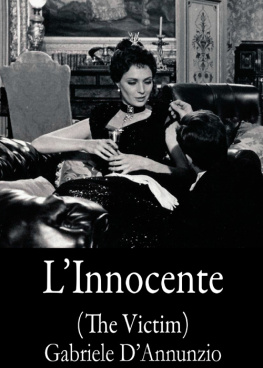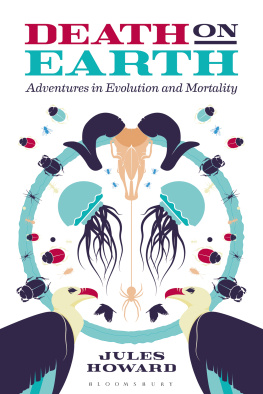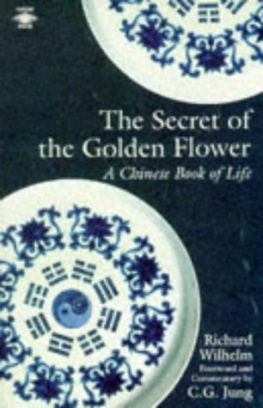Guy de Maupassant - Like Death
Here you can read online Guy de Maupassant - Like Death full text of the book (entire story) in english for free. Download pdf and epub, get meaning, cover and reviews about this ebook. year: 0, genre: Art / Science fiction. Description of the work, (preface) as well as reviews are available. Best literature library LitArk.com created for fans of good reading and offers a wide selection of genres:
Romance novel
Science fiction
Adventure
Detective
Science
History
Home and family
Prose
Art
Politics
Computer
Non-fiction
Religion
Business
Children
Humor
Choose a favorite category and find really read worthwhile books. Enjoy immersion in the world of imagination, feel the emotions of the characters or learn something new for yourself, make an fascinating discovery.
- Book:Like Death
- Author:
- Genre:
- Year:0
- Rating:4 / 5
- Favourites:Add to favourites
- Your mark:
- 80
- 1
- 2
- 3
- 4
- 5
Like Death: summary, description and annotation
We offer to read an annotation, description, summary or preface (depends on what the author of the book "Like Death" wrote himself). If you haven't found the necessary information about the book — write in the comments, we will try to find it.
Like Death — read online for free the complete book (whole text) full work
Below is the text of the book, divided by pages. System saving the place of the last page read, allows you to conveniently read the book "Like Death" online for free, without having to search again every time where you left off. Put a bookmark, and you can go to the page where you finished reading at any time.
Font size:
Interval:
Bookmark:

LIKE DEATH
GUY DE MAUPASSANT
Translated from the French by
RICHARD HOWARD
NEW YORK REVIEW BOOKS

New York
GUY DE MAUPASSANT (18501893) was born in Normandy to a middle-class family that had adopted the noble de prefix only a generation earlier. An indifferent student, Maupassant enlisted in the army during the Franco-Prussian Warstaying only long enough to acquire an intense dislike for all things militaryand then went on to a career as a civil servant. His entre into the literary world was eased by Gustave Flaubert, who had been a childhood playmate of his mothers and who took the young man under his wing, introducing him into salon society. The bulk of Maupassants published works, including more than three hundred short stories and six novels, were written between 1880 and 1890, a period in which he also contributed to several Parisian daily newspapers. Among his best-known works are the novels Bel-Ami and Pierre and Jean and the fantastic tale Le Horla; above all, he is celebrated for his stories, which transformed and defined the genre for years. In 1892, after attempting suicide to escape the hallucinations and headaches brought on by syphilis, Maupassant was committed to an asylum. He died eighteen months later.
RICHARD HOWARD received a National Book Award for his translation of Charles Baudelaires Fleurs du mal and a Pulitzer Prize for Untitled Subjects, his third volume of poems. For New York Review Books he has translated Maupassants Alien Hearts, Honor de Balzacs Unknown Masterpiece, and Marc Fumarolis When the World Spoke French.
OTHER BOOKS BY GUY DE MAUPASSANT PUBLISHED BY NYRB CLASSICS
Afloat
Translated and with an introduction by Douglas Parme
Alien Hearts
Translated and with a preface by Richard Howard
The often approved but jinxed recognition of Guy de Maupassants career was initially characterized by the young authors readiness to groom his talent in accord with a seven-year apprenticeship to Gustave Flaubert (the dear companion of Guys divorced mother). Today, varying choices among Maupassants more than three hundred short stories are frequently read and admired in English translation, although his six novels and his five talesthat are long enough to be mistaken for novelsare not readily translated and, outside of France, nowhere near so familiar as his stories.
Recently Sandra Smith made a fine new translation of thirty Maupassant stories, The Necklace and Other Stories, and it is my hope that her varied and sensitive selection from a literary form offering more than a merely tyronic expedient of shorter to longer pieces will spur readers to rise to Maupassants novels, with the novels proper attributes of development, range, and, well, consummation.
In 2009 I translated Maupassants Alien Hearts, his last novel (published in 1890, shortly before the author died of syphilis at forty-two). I feel there is an obvious logic in adding Like Death (Fort comme la mort), the novel immediately preceding the authors sixth: both are ravishingly (as well as critically) Parisian, and I believe that in France Like Death, along with Bel-Ami, is the most popular of Maupassants major works. It concerns Olivier Bertin, the hero, or perhaps victimcertainly the most intimately prevailing figurea middle-aged artist confronting what he recognizes as the immense dilemma of having been attractive down to the last possible minute of middle age and now seeking to recover in his mistresss daughter the irregularly encouraged possibility of his own lost youth. But though Im happy to have exposed the bare bones of the plot, what strikes me as the translators obligation is to reveal what this thirty-nine-year-old writer invented in his late novels, something which until now I had supposed was the invention the aging Marcel Proust alone created some thirty years after young Maupassant devised it and died.
Here then are examples from Fort comme la mort (the title translated with a sense of joyous responsibility as Like Death), which typify the ecstatic discovery any reader will make:
The painter, listening to her, felt as gay as a bird, as gay as he had never been. Everything she told him, all the futile and commonplace details of that young girls simple existence, amused and interested him.
Lets sit down here, he said.
They sat down near the water. And two swans came floating down ahead of them, expecting to be fed.
Bertin felt memories awakening within him, recollections that had faded, had drowned in inadvertence and suddenly recurred for no reason at all. Of varying nature, they rose so rapidly and so simultaneously that he experienced the sensation of a hand stirring the vase of his memory.
He tried to find what caused this upsurge of his old life that he had felt and noticed several times already, though less often than today. There was always a reason for these sudden evocations, a simple and material cause, an odor perhaps, often a fragrance. How many times had a womans dress flung upon him in passing, with the evaporated breath of some essence, the full recollection of forgotten incidents. At the bottom of old scent flasks he had also recovered fragments of his existence; and all the vagrant odors of the streets, of the fields, of the houses, of the furniture, sweet and unwelcome, the warm odors of summer evenings, the sudden chills of winter nights, always revived remote memories, as if such scents, like the aromatics that preserve mummies, retained and embalmed all these extinct events.
Was it damp grass or chestnut blossom that recalled the past? No. What then? Was he indebted to his eyes for this awakening? What had he seen? Nothing. Among people he had met, someone might have resembled a figure from the past, and without his recognizing the resemblance, the bells of the past had rung in his heart.
Wasnt it more likely to have been sounds? How often had he happened to have heard a piano, or an unknown voice, even a hand organ in the square playing something he had heard twenty years ago, filling his heart with forgotten sensations.... But that continuous, incessant, intangible appeal! What was it around him, close to him, always reviving his extinguished emotions?
Its a little chilly, he said. Lets go home.
This is what we have learned to call involuntary memory. Proust named and used it, and other writers along with Proust and even before him have made use of the powerful figure. What astonishes me is that Maupassants voice is so distinct, so developed, that I cannot tell whether Proust, a known reader of Maupassant, was a recognizable user and developer of the figure or merely (merely!) another inventor of involuntary memory.
And here is another example of possible influence or parallel invention, something I will call involuntary attraction.
From Proust:
He thought of his dream again, and saw once again, as he had felt them close beside him, Odettes pallid complexion, her too thin cheeks, her drawn features, her tired eyes, all the things whichin the course of those successive bursts of affection which had made of his enduring love for Odette a long oblivion of the first impression he had formed of herhe had ceased to notice since the early days of their intimacy, days to which doubtless, while he slept, his memory had returned to seek their exact sensation. And with the old intermittent caddishness which reappeared in him when he was no longer unhappy and his moral standards dropped accordingly, he exclaimed to himself: To think that Ive wasted years of my life, that Ive longed to die, that Ive experienced my greatest love, for a woman who didnt appeal to me, who wasnt even my type.
Font size:
Interval:
Bookmark:
Similar books «Like Death»
Look at similar books to Like Death. We have selected literature similar in name and meaning in the hope of providing readers with more options to find new, interesting, not yet read works.
Discussion, reviews of the book Like Death and just readers' own opinions. Leave your comments, write what you think about the work, its meaning or the main characters. Specify what exactly you liked and what you didn't like, and why you think so.

